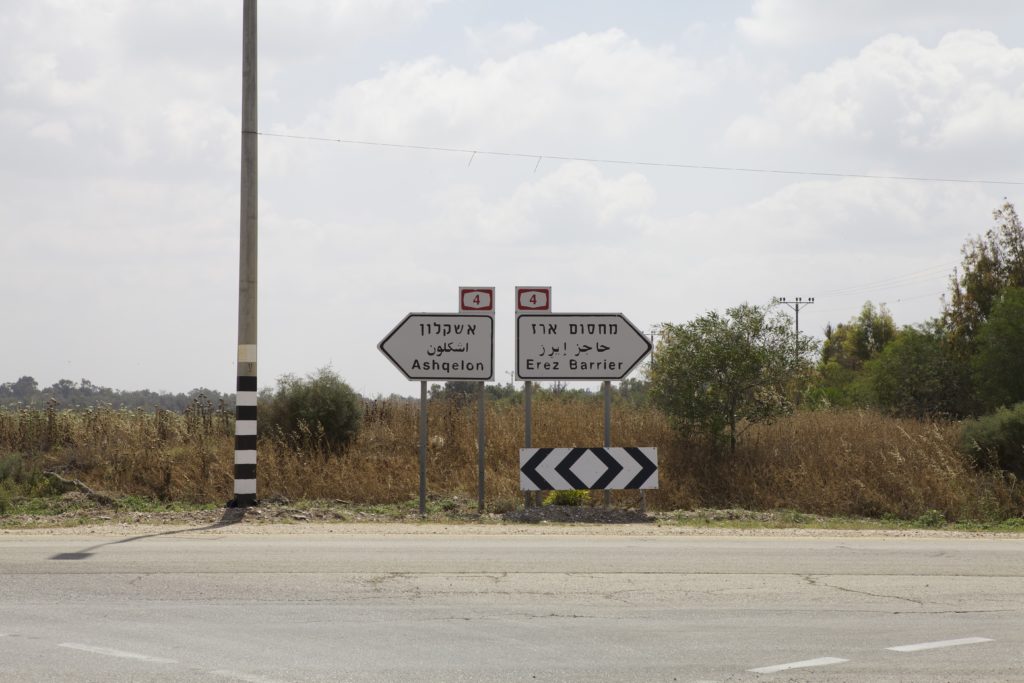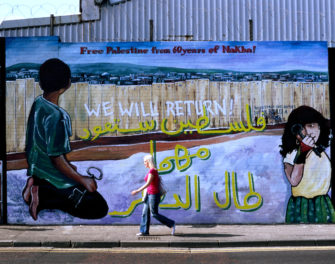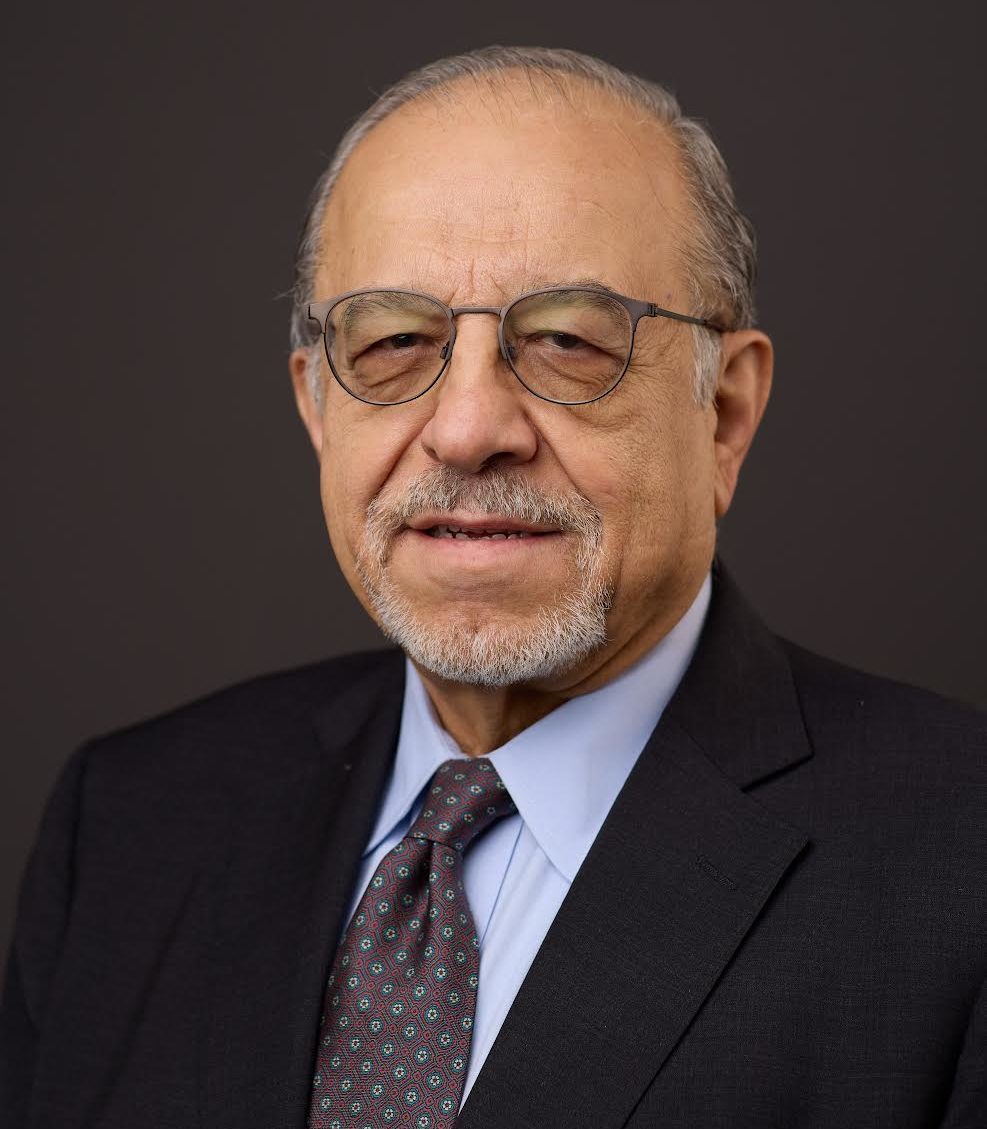
In the introduction to our edited volume When Politics are Sacralized: Comparative Perspectives on Religious Claims and Nationalism we investigate the sacralization of politics in a variety of nation-states and highlight three modes in which states engage in such sacralization. Sacralized politics sanction the power of one group over others in the same state or territory and empower that group’s exclusive sovereignty, political authority, and belonging to a homeland. The first modality centers around managing consciousness, including the construction of self-identity in relation to others. The second works through territoriality and the expansion or exclusion of land at the expense of other groups. The third operates through political governance and employs violence and a necropolitical regime of control dictating who may live and who may die. Of these three modalities that create religio-racialized constructions of the nation-state and produce exclusivity within the political space, violence has attracted the most attention and debate.
This volume is an effort to respond to a major gap in the western literature that has focused on non-state actors when discussing sacralized politics in general, and violence in particular. We suggest that when multiethnic states employ sacralized politics, particularly in cases of intrastate conflict, colonialism, and settler colonialism, the state produces some groups, including groups of citizens, as legal, cultural, spatial, and/or political “others.”
The four insightful reviews engage critically with main themes of the volume and with its various chapters. The reviews strengthen some arguments, question others, broaden the context of sacralized state politics, offer astute challenges for future research, and most importantly pose vital questions that require sharpening the arguments of the chapters in this volume.
Elizabeth Shakman Hurd’s review criticizes the goal of liberal secularism to purify politics of religion—a critique that we acknowledge and the contributors to the volume focus on in some chapters that address Zionism and the Israeli state. She asks an important and challenging question focusing on the modality of violence. In our introduction, we write, and Hurd quotes, “Ethnic and religious nationalism . . . can play the destructive role of promoting an ethnically exclusive state, and the religious claims can play a double purpose—not only to increase the extent of exclusivity but also to provide legitimation for such exclusion (usually translated into political domination) and means of violence. These means can take extreme forms, precisely because of the religious legitimation” (emphasis added by Hurd). Hurd then adds: “As I interpret this account, the problem with Israeli Jewish nationalism—and perhaps other nationalisms as well—is that it is violent because it is insufficiently secular. Religiously based justifications are ‘particularly venomous.’ Yet would the challenge posed by (settler) state violence be resolved if nationalism were freed of religionism, or in this case, ‘Israeli Jewish nationalism from religionism’” (17)? The answer to this question is empirical and it is hard to answer definitively. Yet, our argument contrasts with what Hurd seems to suggest and is neither based on secularist critique nor secular/religious dialectic. In the case of Israel, for example, it is not that the violence of Zionist nationalism is extreme because its form of nationalism is “insufficiently secular.” Actually, some of Israel’s worst forms of violence—the ethnic cleansing of hundreds of thousands of the native Palestinian population, dozens of massacres, destroying hundreds of towns, and taking over the natives’ lands—were enacted under what many Israeli scholars called “the secular phase” of Zionism (which we believe was always undergirded by religious claims).
But since the continued unfolding of the settler colonial project was masked by religious claims, it is much more difficult for Israeli society to face its own reality or to even acknowledge Zionism and its defining and continuing state violence as a settler colonial project. The religious claims also help interpret some global politics, particularly Western international politics, that resist seeing Israel as a settler colonial project despite the overwhelming evidence that it is. Therefore, this example of settler colonialism is more lethal than a settler colonial project obliquely masked by religious claims. Furthermore, whether in the discussions of India, Israel, Sri Lanka, or elsewhere, our concern was not religious-secular dialectics per se, but rather the justification and legitimization of violence with claims anchored in sacred texts. Such anchoring moves the logic of violence itself into the space of the sacred—a space in which a deity is claimed by its followers to be the single authority and arbitrator.
Some of Israel’s worst forms of violence—ethnic cleansing of hundreds of thousands of the native Palestinian population, dozens of massacres, destroying hundreds of towns, and taking over the natives’ lands—were enacted under what many Israeli scholars called “the secular phase” of Zionism (which we believe was always undergirded by religious claims).
But violence is not the only modality we highlighted. Let us look briefly at constructing consciousness based on religious claims. We will give a recent example to further explain our argument. The minister of religious services in Israel’s “center-left” government told Israeli high school students in June 2022 that “[b]ecause we were expelled from our country 2,000 years ago, for 2,000 years we dreamed, we prayed, we wrote songs, we returned to our country. We believe that God, gave us the country, promised it to us in the covenant . . . , the Bible is our Kushan. No one will tell us that it is not ours, all of it. But the Arabs have a different story. We know it’s nonsense, we know it’s not true . . . ” (italics added). Even though Zionism emerged as a modernist/secularist discourse drawing on the language of nationalism, it has been undergirded and authorized by this biblical covenantal narrative. So if one’s God makes a promise based on a covenant, political and religious consciousness are constructed accordingly and the views that fall outside this promise become simply “nonsense”; in such a context, only God can change one’s views. This is different and much less self-conscious than how other forms of settler colonialism progressed, let us say South Africa or North America, in which God has stakes—albeit in the contexts the “promised land” was used metaphorically. A fundamental and defining difference is that while in other cases the bases for legitimacy were transformed by invoking democracy, equality, recognition of past historical wrongs, and facing the settler colonial realities, Zionism has been moving in the opposite direction. Not only is Zionism, in most of its political streams, doubling down on invoking religious claims as foundational for legitimacy, it is also making them increasingly central to its project in Palestine. It openly speaks and acts the sacred, non-negotiable, word of God.
The analyses offered in the various chapters of the book are context- and time-bound, as Raef Zreik’s intervention points out. While highlighting many of the same main points on the relationship between nationalism and religion in different historical contexts and different political arrangements of power relations, he asks a challenging question. Focusing on Zionism, he asks what the discussion would look like if the volume’s title (and the research it has undertaken) was reversed and instead focused on “when the sacred is politicized”? While this would have been an interesting intellectual exercise, it does not address the new intellectual space the book seeks to bring to the public discussion: a focus on the state which invokes sacred texts in order to justify modern politics. Zionism is a case in which the political project came first (albeit always with an underpinning of religious claims), and its overt religious claims came later and continue to this day with a more earnest pace (in Zreik’s view, the political followed the sacred). Yet reversing the question can help us better understand the current stage of hyper-religious Zionism. It is, for example, sometimes difficult to distinguish between a political act and a religious act, and which one is following the other (such as in Jerusalem, Hebron, Bethlehem and Nablus). In this regard Zreik is right to contrast the “here and now” of Zionism when it comes to the relationship between religion, nationalism, and (settler) colonialism. One needs to “dig deep to reveal the intimate relation between these concepts” in Europe’s past, particularly in relationship to colonies in Africa, Asia, and the Americas. Indeed, the book poses the challenge about the present: What states are using religious claims drawn from religious texts to justify their policies of ethnic politics and state identity, violence, land grabbing, and international politics? It is most revealing that while other settler colonial projects gradually moved away from the religious discourse used to justify their project of overtaking lands of other groups, Zionist religious claims increased with time. This is an inevitable development meant to obscure the ongoing settler colonial project.

Gladys Ganiel rightly observes that colonialism and settler-colonial theory is at the heart of the book. Thus, referring to Lloyd’s chapter on Northern Ireland, she points out that while the postcolonial conditions in the Republic of Ireland after 1922 gradually dimmed the salient differences between Protestant and Catholic identities, in Northern Ireland, which remained a settler colonial state, the social and political structures continued to manufacture colonial mentalities. Ganiel highlights the importance of external support for structures—like those in Northern Ireland—that can counter colonial practices, consciousness, and mentalities. This observation is of great importance to our central argument: how can external support initiate structures that counteract mentalities of exclusion and racialization anchored in religious claims?
Ganiel emphasizes the two cases where religious claims are not integral to national politics: Palestine and Northern Ireland. But even if religious claims are not significant at the national level in Northern Ireland, religion still operates as a group marker and therefore might carry significance in other forms. While she welcomes O’Dowd’s concept of vernacular religion in which religion is not reduced to belief but is part of everyday practice, she warns against “reducing religion to high-level religious claims.” Both her own scholarly work and her review of the edited volume resist the reduction of religion and religious claims and emphasize the way the mundane invocation of religious claims and practices construct, transform, and sacralize the political. She argues that in many cases the clergy played a peacebuilding role in Northern Ireland out of intense personal convictions and in doing so have resisted “sacralizing politics.” This observation is important to keep in mind when thinking of positive role that religion can and does play in various settings.
Joram Tarusarira makes an insightful comparison between the current political context in Zimbabwe and some of the case-studies discussed in the book such as India, Israel, and Iran. He discusses the troubled postcolonial constitutionally secular Zimbabwe to show how religion and politics are intertwined. In this particular context, he argues that “the fusion of religion and nationalism is not a necessary outcome.” For example, the fusion between religious claims and nationalism in the legitimation of land and power-politics is often used as an instrument “by political elites to justify and legitimate particular political policies, actions, and imaginaries.”
Tarusarira’s point about the instrumentality of the fusion between religion and nationalism is essential. When are religious claims employed for political sacralization? Are they inevitable? In what cases? For example, in the case of Zionism we argue that sacralization is inevitable because it is necessary for claiming legitimacy. But in India and Sri Lanka such sacralization was not necessary. So, under what circumstances are religious claims invoked and how do they relate to nationalism? Tarusarira uses the case of modern Iran to highlight what Banuazizi also shows in his chapter, namely that religious claims and nationalist claims were interchangeably used as state legitimizers. Religious claims were undermined in favor of nationalist ones after the 1979 revolution in Iran. But the revolution conveniently invoked religious rhetoric as needed during the 1980s war with Iraq. Tarusarira concludes, “The lesson we might take from Banuazizi is that the relationship between religion and nationalism depends on the political interests of those drawing on them. Both religion and nationalism ultimately serve the same purpose, namely political mobilization and state legitimacy.” This same logic of political purpose was employed in Zimbabwe: “What makes religion so powerful and compelling in this context is that it dogmatically sacralizes, and thus provides an absolute and non-negotiable quality to policies and actions. Sacralization thus closes off debate over policies.” This non-negotiability, supported by the sacred text, can potentially bring political debate to a dead end. This conclusion prompts some of the same questions raised by reviewers: Can nationalism not supported by a religious claim can bring politics to a dead end? We argue that indeed, it can. But, as in the question about violence discussed above, violence and political deadlocks that are not anchored in religious claims are contested in a space that remains outside the prescription of the scripture. As Tarusarira notes, the contestation over policies is not locked by the sacred text, and this difference matters for how legitimacy is constructed and maintained.
When Politics are Sacralized seeks to comparatively reveal racially based nationalist-religious claims, along with the social, cultural, and political articulations of those claims and their significance.
Engaging with the insightful reviews leads us to emphasize that our concern in this volume was not religion per se, but rather the justification and legitimization of violence (as one of the other modalities of sacralizing politics) with religious claims. The political impact of this process engenders racialization as religious difference. Thus, in Israel, our central case study, theorizing the state as solely a settler colonial project is complicated by the fact that its ideology is also embedded in claims derived from a religious text. These claims were also employed to construct racial differences, exclusivity, and national identity that were inseparable from its religious justifications/politics. When Politics are Sacralized seeks to comparatively reveal racially based nationalist-religious claims, along with the social, cultural, and political articulations of those claims and their significance. What the various chapters and case studies point out is more the political than the religious per se. They seek to show how political, colonial, or settler-colonial violence often relies on religious text. This text, in turn, is also employed to ensure the privileging of one religious/ethnic group over another in every socio-political, legal, and territorial domain. The book stresses how the sacralization of politics and the invocation of religious differences has become the modality through which power politics, racism, and colonialism operate. Hence, the state’s sacralization of politics turns religious differences into racial differences and legitimizes a racially constituted division of rights, space, and modes of life.


